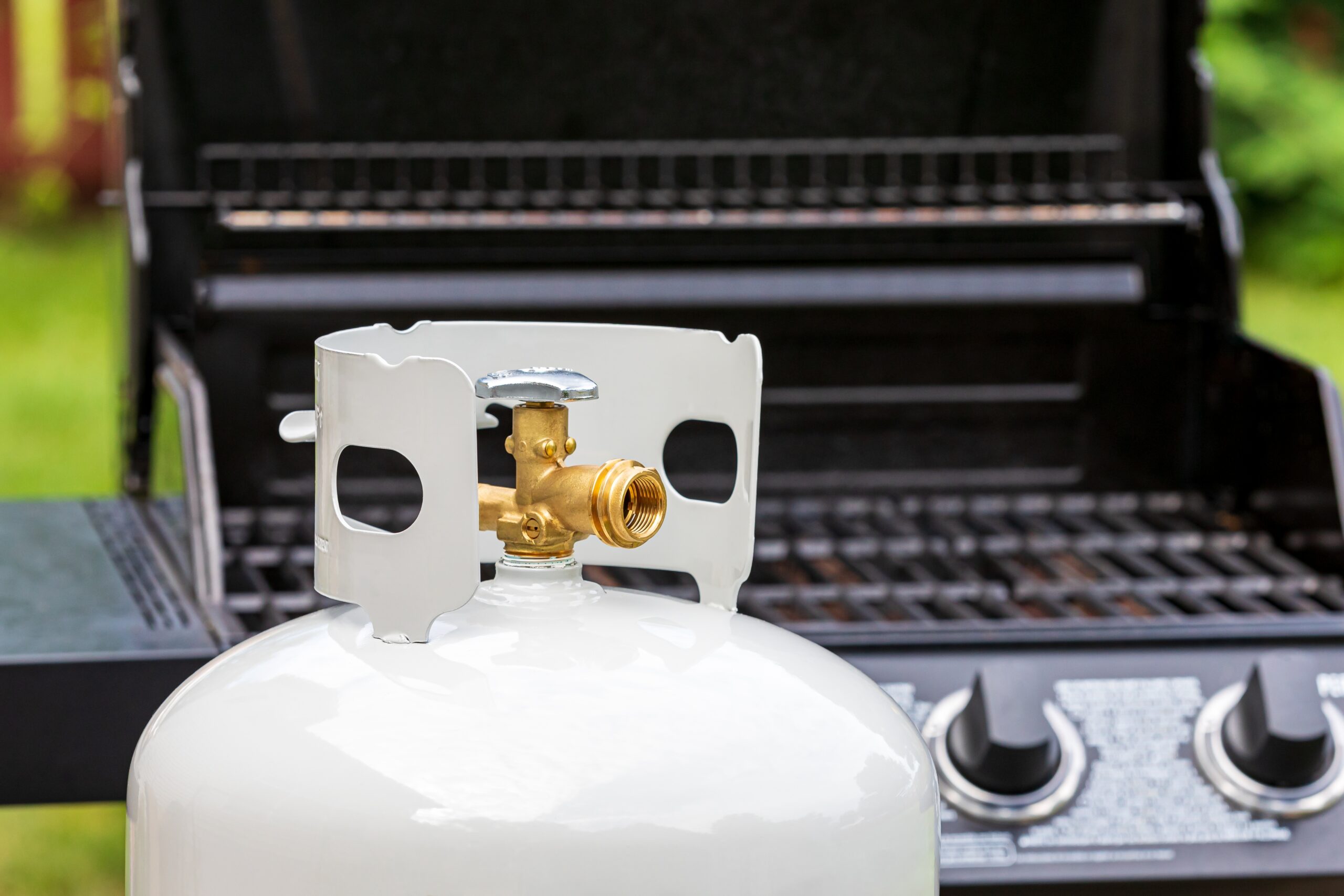

When it comes to heating your home, two popular fuel options often come into consideration: propane and heating oil. The propane vs. heating oil debate is a common one among homeowners looking to make informed decisions about their heating systems. And, yes, while we are a leading fuel services company in Connecticut, we still believe in providing you with the pros and cons associated with both types. We are fuel-agnostic in that way. We don’t necessarily favor one type over another. We want what’s best for your family and its needs.
In this blog, we’ll explore seven key differences between these two fuel sources to help you understand which might be the better choice for your home.

Propane or heating oil? Uncover 7 key differences to fuel your home wisely.
Propane is a hydrocarbon gas that is compressed and stored as a liquid. It’s a byproduct of natural gas processing and petroleum refining. Propane contains about 91,500 BTUs (British Thermal Units) per gallon. On the other hand, heating oil, also known as fuel oil or oil heat, is a petroleum product similar to diesel fuel. It has a higher energy density than propane, containing approximately 138,500 BTUs per gallon.
This difference in energy content means that heating oil provides more energy per gallon in the propane vs. heating oil comparison. However, this discrepancy doesn’t necessarily translate to better efficiency or cost-effectiveness overall, as other factors come into play.
Modern propane furnaces can achieve efficiency ratings of up to 98%, meaning almost all of the fuel’s energy is converted into heat for your home. Propane burns clean and produces fewer emissions compared to heating oil. While oil furnaces have also improved in efficiency over the years, with some models reaching up to 90% efficiency, they generally lag behind propane in terms of maximum efficiency ratings.
In the propane vs. heating oil efficiency battle, propane often comes out on top due to its cleaner burn and higher potential efficiency ratings. As such, even though propane contains less energy per gallon, a highly efficient propane system can often heat your home using less fuel overall.
Environmental impact is a crucial factor when comparing heating fuels. In this regard, propane and heating oil have different characteristics. Propane is often considered a clean-burning fuel, producing relatively low carbon emissions. If spilled, propane evaporates quickly, minimizing environmental impact. Heating oil, on the other hand, has its own set of properties. During combustion, it produces a different emission profile compared to propane. In the event of a spill, heating oil requires specific cleanup procedures to manage potential environmental effects.
The environmental profiles of these fuels are important considerations in propane vs. heating oil comparisons. Each fuel has its own attributes that may appeal to different homeowners based on their specific needs and priorities. Factors such as local availability, existing infrastructure, and individual household requirements also play significant roles in fuel choice decisions.
Propane prices can vary significantly based on supply and demand, and they’re often influenced by natural gas prices. Prices may fluctuate seasonally and can sometimes be volatile. Heating oil prices are closely tied to crude oil prices, which can be subject to global market fluctuations. Historically, heating oil prices have been more volatile than propane prices.
When comparing propane vs. heating oil costs, it’s important to consider both current prices and long-term trends. While prices for both fuels can fluctuate, heating oil has typically experienced more price volatility. However, actual costs can vary depending on your location and the specific market conditions.
Storage and delivery methods differ significantly between these two fuel types. When it comes to propane, pressurized tanks are the norm, offering flexibility in placement with both above-ground and underground options. These tanks are typically owned or leased from the propane supplier. Heating oil, on the other hand, is stored in tanks usually located in the basement or outside the home, with homeowners often owning these tanks outright. Both fuels share similarities in delivery methods, with options for as-needed or automatic delivery schedules.
In the propane vs. heating oil storage comparison, each option has its advantages. Propane’s flexibility in tank placement, including aesthetically pleasing underground options, can be appealing to many homeowners. However, the common ownership of heating oil tanks by homeowners can provide greater freedom in choosing suppliers.
Fuel availability is an important consideration when choosing a heating source. Both propane and heating oil have established distribution networks across various regions. Propane is widely available in many areas, including rural locations without natural gas access. Similarly, heating oil has a strong presence in many regions, particularly in the northeastern United States and parts of the Northwest.
The availability of these fuels can vary depending on your location, but both industries have developed efficient delivery systems to meet consumer needs. Many heating oil providers excel at monitoring price fluctuations and work diligently to offer competitive pricing to their customers. They often employ sophisticated inventory management and delivery scheduling to ensure consistent supply.
When comparing propane vs. heating oil, it’s important to consider the local market dynamics. In areas where both fuels are common, homeowners may benefit from a competitive market with multiple suppliers. Your geographical location and the established infrastructure in your area can influence which fuel type might be more practical for your home heating needs.
Fortunately, for Valiant Energy customers, we can deliver both fuel types throughout Connecticut 24/7/365!
Propane can be used for a wide range of home appliances beyond just heating, including water heaters, stoves, dryers, and even refrigerators. This versatility can be a significant advantage in the propane vs. heating oil debate. Heating oil is primarily used for home heating and, in some cases, water heating. It’s not typically used for other household appliances.
Propane offers greater versatility in terms of the number and types of appliances it can power in your home. This can be a significant factor for homeowners looking to use a single fuel source for multiple purposes.

Valiant Energy Solutions can help you choose the best heating option for your home’s unique needs.
The propane vs. heating oil decision is an important one that can impact your home’s comfort, energy costs, and environmental footprint for years to come. At Valiant Energy Solutions, we understand that every home and homeowner’s needs are unique.
Don’t let the propane vs. heating oil debate leave you cold. Contact Valiant Energy Solutions today for a personalized consultation. Our knowledgeable team will help you understand the nuances of propane vs. heating oil, guiding you towards the heating solution that best meets your needs in terms of cost, efficiency, and environmental impact.